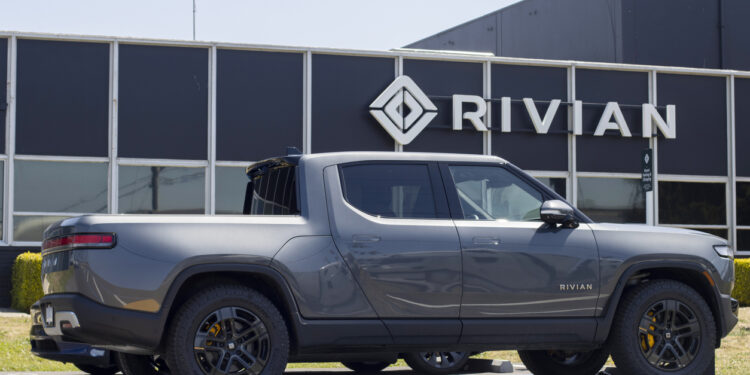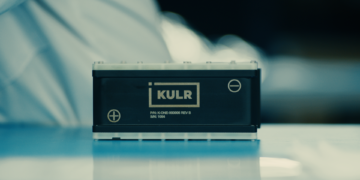The EV Maker Faces New Setbacks Due to Parts Shortages, But Remains Optimistic About Meeting Production Targets
Rivian Automotive (RIVN), the electric vehicle (EV) manufacturer, has hit another snag in its production process, this time temporarily suspending the assembly of its commercial electric delivery vans (EDVs) designed for retail giant Amazon.com. The halt, attributed to a shortage of critical parts, was confirmed by a Rivian spokesperson on Friday. This development marks the latest in a series of supply chain disruptions that have plagued Rivian and other EV makers over the past two years.
Supply Chain Woes Continue to Disrupt Production
The suspension of EDV production underscores the ongoing challenges faced by Rivian as it strives to meet its ambitious production goals. Like many in the EV industry, Rivian has been grappling with significant production issues, largely due to supplier shortages. The global supply chain crisis, exacerbated by the COVID-19 pandemic, has resulted in delays and disruptions across various industries, with the EV sector being particularly hard hit.
“A part shortage has temporarily impacted our Electric Delivery Van (EDV) production. We expect to recover all missed production,” a Rivian spokesperson stated in an emailed response. However, the company did not provide specifics regarding the part in question, the supplier involved, or the timeline for the production halt. Rivian also declined to comment on whether production had resumed at the time of the statement.
Rivian’s Production Capabilities and Future Plans
Rivian currently manufactures all its vehicles, including the R1S SUV and R1T pickup models, at its factory in Normal, Illinois. Despite the EDV production halt, the company confirmed that the part shortage would not affect the production of these other models. Rivian’s manufacturing capabilities are set to expand with the planned addition of a second assembly plant in Georgia, a move that aligns with its broader strategy to scale production and meet growing demand.
The EV maker’s relationship with Amazon is particularly significant. Amazon, Rivian’s largest investor with a 16% stake in the company, has placed an order for 100,000 electric delivery vans, which are expected to be deployed by 2030. This partnership is crucial for Rivian, as sales to Amazon accounted for approximately 19% of the company’s revenue last year. The successful fulfillment of this order is not only a financial imperative but also a critical step in solidifying Rivian’s position as a leading player in the commercial EV market.
Impact on Rivian’s Stock and Production Forecasts
Following the announcement of the production halt, Rivian’s shares saw a slight dip in early trading. This reaction from investors reflects concerns over the company’s ability to navigate ongoing supply chain challenges and meet its production targets. However, Rivian has sought to reassure stakeholders by maintaining its overall production forecast.
Earlier this month, Rivian reiterated its commitment to its production goals, despite acknowledging that deliveries would be slightly lower in the current quarter. This adjustment was partly due to a temporary shutdown of its Illinois factory in April for retooling and modifications, a move aimed at enhancing the facility’s production capabilities.
Looking Ahead: Challenges and Opportunities
While the temporary suspension of EDV production is a setback, Rivian remains optimistic about its ability to recover lost ground and fulfill its obligations to Amazon. The broader EV market is still in a state of flux, with supply chain disruptions, rising material costs, and logistical challenges continuing to pose significant hurdles. However, the demand for electric vehicles, particularly in the commercial sector, remains strong, driven by increasing regulatory pressure and a growing emphasis on sustainability.
For Rivian, the road ahead will likely involve a delicate balancing act—managing supply chain risks while scaling production to meet the expectations of its investors and partners. As the company continues to expand its manufacturing footprint and refine its operations, its ability to adapt to these challenges will be critical in determining its long-term success.
In the meantime, all eyes will be on Rivian as it works to resume EDV production and deliver on its promises to Amazon and its other stakeholders.
You might like this article:The AI Revolution: Tech Earnings Validate the Dawn of a New Era











